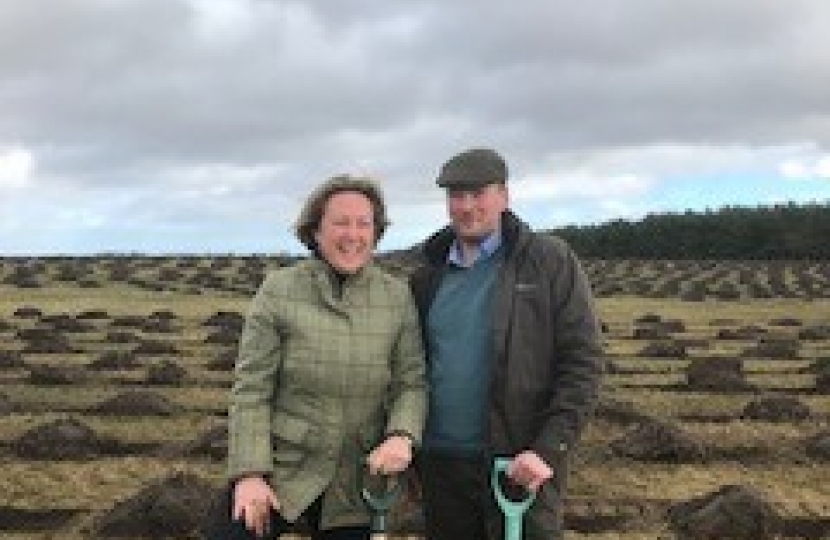
The last few weeks have brought some fantastic news for the environment of our beautiful area. Last Friday I was honoured to plant some of the first trees in the new Doddington Forest, alongside children from Wooler Middle School. It was really poignant for me that the children were there to help with the planting, as this is an investment in their future, and the environment they will inhabit for their lifetimes. The respect that we have for the land and our natural environment, as we plant the largest forestry scheme in England for a generation right here in Northumberland, reflects the Government’s commitment to leaving our country in a better state than we found it.
In total, more than 600,000 trees will be planted at the site. Those trees will be carbon captive vessels, which will help secure the future of rural forestry businesses. Furthermore, local residents who have been supportive of the scheme, will see forest education for local school pupils. The new forest will extend the red squirrel buffer zone, helping to protect our native species.
Doddington is a great example of modern, mixed forestry. A combination of conifer and broadleaf trees which will deliver multiple benefits - for Northumberland’s economy, environment and communities. The very same day that I was at Doddington, we finally had the excellent news that the community had won the battle against the opencast mine at Druridge Bay. It seemed almost written, in only the way nature can, that the day we plant for our future environment in Doddington, some of our historic and beautiful coastline is protected in Druridge.
Sajid Javid, the Secretary of State responsible for the final decision, decided to reject the proposal for many of the reasons that we have campaigned hard on over recent years. The damage to both the visual and natural landscape of an area of such outstanding natural beauty was cited in the decision. The negative impact on climate change of continuing to mine coal was also sited: the first time this important challenge of reducing CO2 emissions has been cited in planning decisions. This decision ensures that we do not harm our tourism sector that is vital to so many in the region, and soaring year on year, alongside protecting our unique environment.
The community has campaigned passionately against the development, and the Save Druridge Bay campaign group deserves a great deal of credit. It is proof that the power of communities can really change policy and have an effect in Whitehall.
The last week has also seen another environmental matter hit the news headlines and that is the matter of fish. Sometimes politics throws up unexpected headlines and this is certainly one. Leaving the disastrous Common Fisheries Policy is one of the major plus points of leaving the European Union. However, last week raised a great deal of concern with constituents following the news that we must stay in the CFP until the end of the implementation deal.
I have been speaking out on behalf of our fishing communities, and was able to ask the Prime Minister at PMQs to consider financial mitigation for our fishermen just in case the remaining EU27 in the CFP decide to try and squeeze us and threaten our vital fishing industry’s sustainability. I will be working non-stop with colleagues to fight for our fishermen to ensure that once we are out of the EU, we will still have a fishing industry, which we can then rebuild. There wouldn’t be much point regaining control of our fishing waters if we have no industry left to sustainably fish it.

